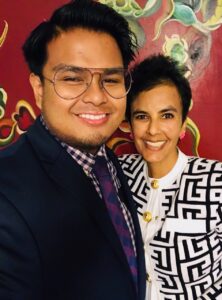Article Summary by Rupinder Legha
Racism is a centuries-old public health crisis that has devastated countless lives. Up until recently, it did not garner much attention in healthcare. The worldwide racial reckoning that transpired in 2020 in the midst of the COVID pandemic and George Floyd’s lynching changed that. An explosion of antiracism efforts has followed, often under the umbrella of diversity, equity, and inclusion, but without any ethical guidelines to preserve the integrity of this work. This oversight is worrisome because healthcare is rife with racial health inequities related to abusive training practices, a workforce that does not represent the racial diversity of the community it serves, and treatment interventions that are provided or denied along the fault lines of oppression. Furthermore, a number of academics have gravitated to antiracism work, due to the surge in funding and professional prestige related to it, not a commitment to diminishing inequities. As a result, antiracist healthcare interventions—related to clinical care, research, and education and training—are at high risk of upholding the racism they are supposed to dismantle. This article highlights the nine ethical guidelines we created while developing the Antiracist Healing Collaborative (AHC), a medical student-led initiative committed to addressing the dearth of antiracist medical education content through the creation of an antiracism in medicine curriculum series. Our nine tenets allowed us to navigate the hardships characteristic of anti-oppression efforts, while promoting liberation and healing, instead of recapitulating the white supremacy culture embedded in academic medicine. We share them with the public to promote greater recognition of the risks embedded in antiracism work and to underscore that the way we treat each other while we do antiracism work is, in fact, the antiracism work.
Listen to the author discuss the article below:
Read the full article on the Medical Humanities journal website.
 Rupinder Kaur Legha, MD is an independent clinician scholar activist based in Los Angeles. As a child, adolescent, and adult psychiatrist, she provides humane, non-coercive, affirming, and antiracist mental health services in California, Colorado, New York, and New Jersey. She is also the founder of the Antiracism in Mental Health fellowship, the first-of-its-kind intensive antiracism training program for healthcare providers. IG: @RupiLeghaMD Twitter: @RupiLegha Linked In: https://www.linkedin.com/in/rupileghamd/ email: antiracistmd@gmail.com
Rupinder Kaur Legha, MD is an independent clinician scholar activist based in Los Angeles. As a child, adolescent, and adult psychiatrist, she provides humane, non-coercive, affirming, and antiracist mental health services in California, Colorado, New York, and New Jersey. She is also the founder of the Antiracism in Mental Health fellowship, the first-of-its-kind intensive antiracism training program for healthcare providers. IG: @RupiLeghaMD Twitter: @RupiLegha Linked In: https://www.linkedin.com/in/rupileghamd/ email: antiracistmd@gmail.com